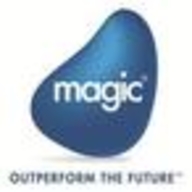

Find out what your peers are saying about Microsoft, Informatica, Talend and others in Data Integration.
| Product | Market Share (%) |
|---|---|
| Azure Data Factory | 5.6% |
| Informatica PowerCenter | 6.3% |
| SSIS | 5.9% |
| Other | 82.2% |
| Product | Market Share (%) |
|---|---|
| Magic xpi Integration Platform | 0.7% |
| Microsoft Azure Logic Apps | 13.1% |
| Boomi iPaaS | 12.4% |
| Other | 73.8% |

| Company Size | Count |
|---|---|
| Small Business | 31 |
| Midsize Enterprise | 19 |
| Large Enterprise | 55 |
Azure Data Factory efficiently manages and integrates data from various sources, enabling seamless movement and transformation across platforms. Its valuable features include seamless integration with Azure services, handling large data volumes, flexible transformation, user-friendly interface, extensive connectors, and scalability. Users have experienced improved team performance, workflow simplification, enhanced collaboration, streamlined processes, and boosted productivity.
Magic xpi Integration Platform is a total solution for integrating, automating and transforming the data of your business applications. The intuitive and easy-to-use interface, including 100+ pre-built connectors, makes it ideal for all types of users, from business users and citizen integrators to IT experts. Magic’s end-to-end tailored solutions are a great fit for all types of IT infrastructures, supporting all of the on-premise, cloud and hybrid integration needs of organizations around the world.
We monitor all Data Integration reviews to prevent fraudulent reviews and keep review quality high. We do not post reviews by company employees or direct competitors. We validate each review for authenticity via cross-reference with LinkedIn, and personal follow-up with the reviewer when necessary.